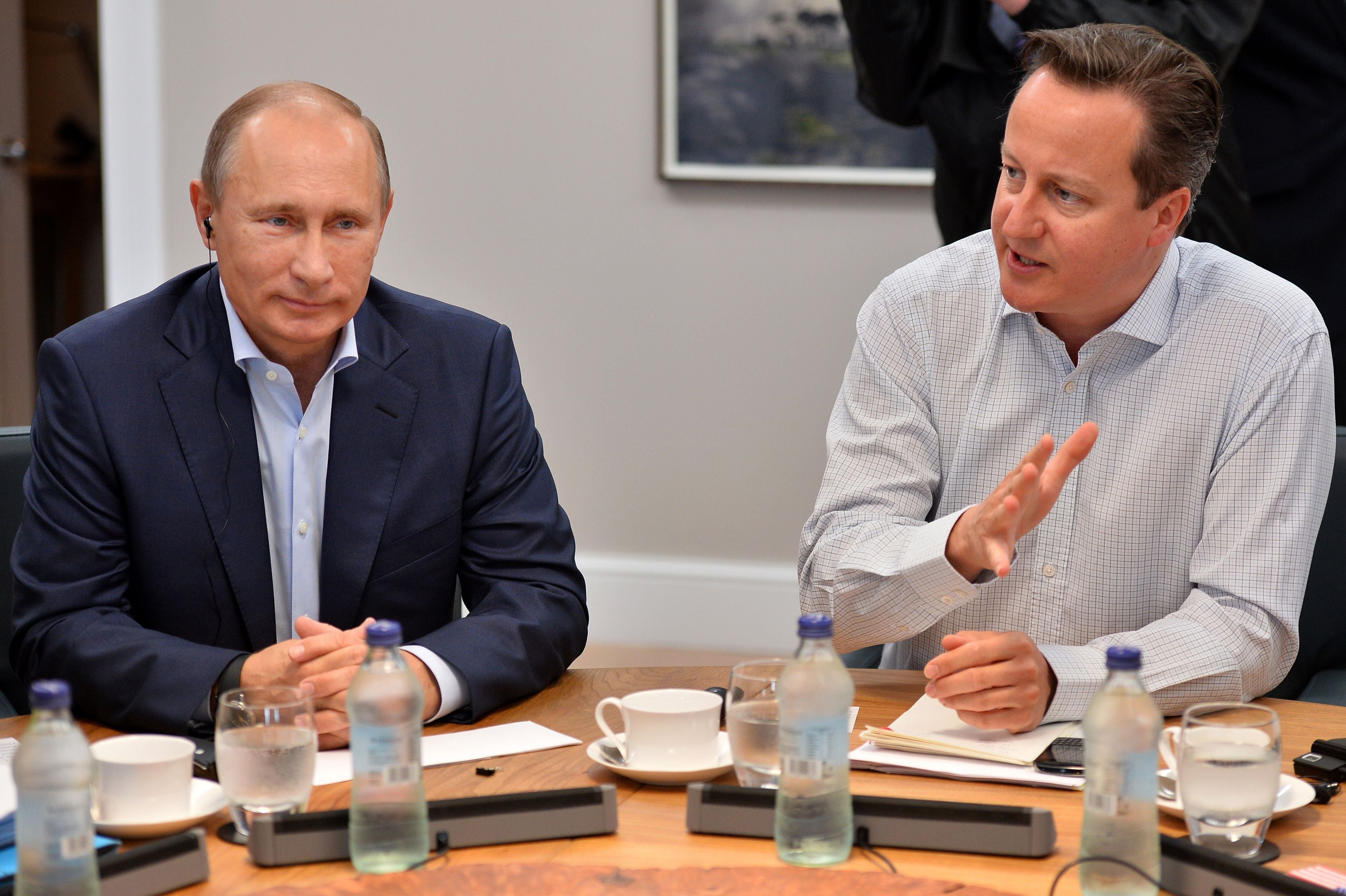First Syria, now Ukraine – Britain cannot backstab its allies over chemical weapons again
In 2013, Putin won the biggest victory against western democracies in the 21st century


It was the hottest night of late August 2013 in a sweltering Paris, as the recently elected socialist President of France, François Hollande, waited in his Elysée office to give an order that would have changed history.
Ten days earlier more than 1400 innocent people had been killed in a Sarin gas attack on the outskirts of Damascus. The use of chemical weapons by Bashar al-Assad in Syria, an hour’s flight from the European Union, in a genocidal attack on his own people marked a new turn in 21st century history.
France’s conservative President Chirac had played endless games a decade earlier on whether he would or would not stand with the US, UK and most EU democracies (other than Germany) in stopping Saddam Hussein from defying UN resolutions. In contrast, socialist Hollande was clear that the Syrian dictator, now in close alliance with Russia’s Vladimir Putin, had to be faced down.
After joint planning with Washington, he ordered Rafale warplanes equipped with deadly Scalp missiles to stand by to attack Syrian positions in conjunction with the United States and the UK, whose prime minister, David Cameron, had earlier encouraged regime-change in Syria. Not long after, French tanker planes were ready to take off to refuel warplanes, while French spy planes were in the air over Cyprus to guide the French cruise missile attack with pinpoint accuracy.
But, as Obama and Hollande were steeling themselves to take on Assad and Putin, they were stabbed in the back by the United Kingdom. On the eve of the planned attack, Ed Miliband, then leader of the Labour party, told MPs that Labour would not support action against Assad and Putin over the use of chemical weapons.
Cameron had no Tory majority and relied on the Liberal Democrats to secure legislation to enact his austerity measures and the Brexit referendum. There was no stomach in Labour for taking on Putin, or acting as Tony Blair had in Kosovo or Sierre Leone to use hard military force to prevent massacres of innocent people. 30 Tory MPs and 9 Lib Dem MPs joined Labour in opposing British action.
The British decision to appease Assad and Putin shattered the democratic alliance against the use of chemical weapons. President Obama felt betrayed by London and said he would let the US Congress decide on air strikes. It meant Assad and Putin had won as opposition US lawmakers were and are always keener on damaging their president than putting national interest and global law first.
Obama called Hollande to announce his decision. The French president was stunned. He expected little from l’Albion perfide and a UK prime minister who had greenlit a plebiscite to take the UK out of Europe.
America’s right-wing had mocked the French as “cheese-eating surrender monkeys” in 2003 after Chirac vetoed a UN resolution authorising action against Saddam. Now it was the French who were willing to take action and the Brits who were refusing to face down Assad. The French pilots were told to switch off their engines and go back home to sleep.
On the morning of 1 September 2013, Putin and his Syrian puppet had won the biggest victory against western democracies in the 21st century.
Emboldened by British refusal to take action, which Obama went along with, Putin started making plans to invade Ukraine the next year when he annexed Crimea and parts of eastern Ukraine, a sovereign UN member state. This time he could count on the do-nothing approach of Angela Merkel, the German Social Democratic Party and the business establishment – the so-called Putin Versteher (Putin understanders).
To keep up to speed with all the latest opinions and comment, sign up to our free weekly Voices Dispatches newsletter by clicking here
But it was the British House of Commons, the grandchildren of MPs who cheered Neville Chamberlain when he returned from Munich in September 1938 saying he had got Hitler to agree to peace, which told Putin that chemical attacks would not meet any real sanction in 2013.
Today, Boris Johnson and the Labour leader, Sir Keir Starmer, are sending tougher messages to Vladimir Putin as they support the brave people of Ukraine, though neither can suspend their Brexit obsession so Britain can act in full concert with Europe.
If Putin is seen to be using chemical weapons in Ukraine, will today’s House of Commons be made of sterner stuff and take action?
Denis MacShane is the former Minister of Europe and now writes on European policy and politics. His latest book “Must Labour Always Lose?” is published by Claret Press.
Join our commenting forum
Join thought-provoking conversations, follow other Independent readers and see their replies
Comments
Bookmark popover
Removed from bookmarks